‘The Ukraine Affair’ involving Donald Trump was front-page news across the world this month – but not in Ukraine itself. There were flutterings of embarrassment and face-palms on social media as the transcript of the Zelensky-Trump call emerged, but they very soon petered out. Believe it or not, on 1 October it was eclipsed by a far bigger story for Ukrainians: Putin is winning Europe’s only war.
‘Listen to the Nation! No to Capitulation!’ shouted an angry crowd outside Mr Zelensky’s presidential office this weekend. Protests have broken out across the country in response to the president’s announcement that Ukraine has agreed to the ‘Steinmeier Formula’ – a simplified peace process for the Donbas region in Eastern Ukraine – which was first suggested in 2016 by the then foreign minister (current President) of Germany, Frank-Walter Steinmeier.
The steps of this formula are: all foreign militias, volunteers and covert forces will first leave Eastern Ukraine so ‘free’ elections (monitored by international observers) can be held in the so-called Donetsk and Luhansk People’s Republics in accordance with Ukrainian law. On the day after the election these areas will then be granted ‘special status’ within Ukraine, ominously similar to the ‘autonomous republic’ status that Crimea enjoyed before it was annexed by Russia. In return, Ukraine will regain full control of its eastern border. While the order of the steps is still disputed, that’s the essence of what Zelensky has agreed to. It all seems rather dull and reasonable until you look at the detail.
The ‘Steinmeier Formula’ may bring peace to Ukraine but it will be at the cost of the country’s sovereignty for years to come. The assurances needed for the formula to work in Ukraine’s favour are impossible to achieve: in the separatist-held areas elections can never be truly ‘free’ because for the past five years being vocally pro-Ukrainian could lead to you being tied up in a basement. Even if a charming international observer watches you filling out your ballot paper, he can’t protect you from the thugs waiting outside your apartment block.
It is impossible to prove who is a Russian militiaman and who is an ordinary local citizen in the region as many residents of the breakaway ‘republics’ have Russian passports, and Russia has been frantically issuing even more to Donbas residents since Zelensky came to power. There is also no way of stopping opportunistic bandits that seized businesses and homes from their neighbours from running for office as they are immune from prosecution under the Minsk Protocol. Even if Ukraine gains control of its border before the elections, as Mr Zelensky wants, those who gain power in the region will still be closely linked to Russia. A pro-Russian autonomous enclave within Ukraine would be a debilitating tumour in the country’s side and a security threat to the entire continent.
When you watch the coverage on Russian state TV, the aims of the Kremlin are laid bare. ‘This is a chance to create a new, more viable model for the Ukrainian state: a federative Ukraine,’ says the propaganda peddler Dmitry Kiselyov on his weekly two-hour spin show on Sunday night. The modern Ukraine that emerged in 1991 was apparently not ‘viable’ in the first place. And now – after five years of war, Crimea seized and 13,000 dead – Russia finally has a chance to finish the job and ‘fix’ Ukraine by legitimising its bandit proxies in the east of the country.
‘Why do we [Russia] need to take Luhansk and Donetsk? What’s the point? When if Donetsk and Luhansk with all their new autonomous powers are part of Ukraine, Ukraine can never be anti-Russian. Donetsk and Luhansk will be like antibodies that will clean the whole country of fascist vermin.’ says Kiselyov’s colleague from Russia One, Vladimir Solovyov in a video widely shared on Ukrainian social media this week.
Why are Trump and Boris silent on this? One is too preoccupied with ‘The Ukraine affair’ to stand up for Ukraine and the other is too preoccupied with the EU to stand up for Europe. In July, Zelensky, who unlike his counterparts has been paid specifically to be funny, floated the idea of inviting the US and UK into the ‘Normandy Four’ for peace talks (currently, Germany, France, Russia and Ukraine are the only countries with a seat at that table). Boris has a unique opportunity to stick up for Ukraine, try to make the ‘Steinmeier Formula’ work, and promise continued military support for Ukraine if it fails.
Boris as foreign secretary was characterised as a pugnacious loon by the Russian state during the diplomatic fallout over the poisoning of the Skripals in Salisbury last year. Perhaps it’s exactly that pugnacious loon who would be best placed to disrupt a Russia-friendly peace deal and stand up for Ukraine’s sovereignty. Wherever Britain finds itself in the next couple of months, being emphatic and visible in support of Ukraine is the best way to show that the UK understands that the shared values that bond Europe are deeper than those of the European Union. The success of ‘Global Britain’ and its place in the world begins with a solid understanding of the threat of Russia and the war in Donbas.
In April, I was working on a community theatre project in the town of Bakhmut in the Kyiv-controlled part of the Donetsk region in Eastern Ukraine. The Iron Curtain has been slipping eastwards since 1989 and now rests somewhere in a field 20km south of the town, at the line of contact with the Pro-Russian separatist-held territories. One student-activist we worked with is from Horlivka, a town just on the other side of the contact line. He fled with his mother as shelling began near his home. A few days before Zelensky was voted in, I asked him what he feared the most after the election.
‘Having to leave Bakhmut like I left Horlivka.’
It’s not shelling that he fears but a return of corruption and cronyism to the region that will make activism like his too dangerous. Britain should not abandon young people like him on the front line in the fight against corruption and Russian propaganda. They risk their lives to improve their towns in the name of ‘European Values’. If there is to be peace in Donbas then it must be a peace these young people can be proud of.
Got something to add? Join the discussion and comment below.
Get 10 issues for just $10
Subscribe to The Spectator Australia today for the next 10 magazine issues, plus full online access, for just $10.

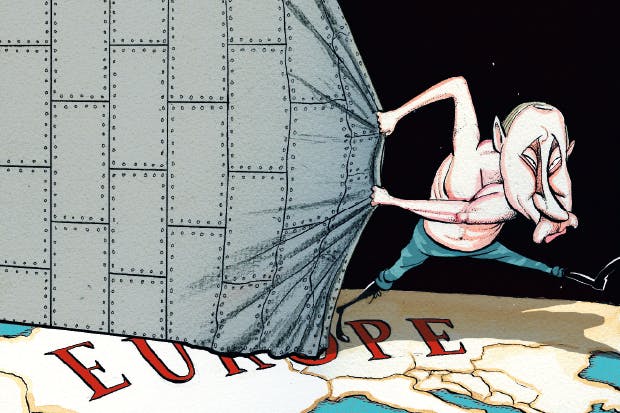

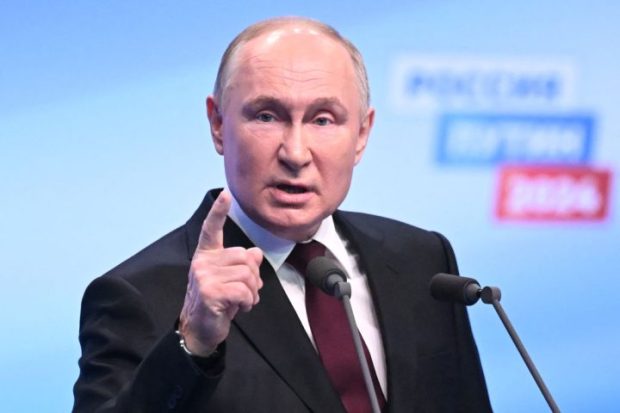
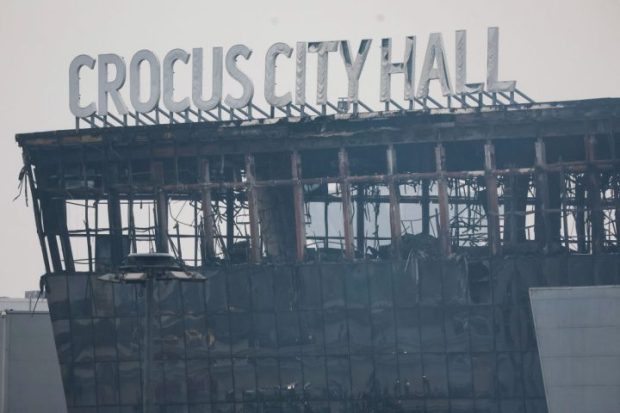
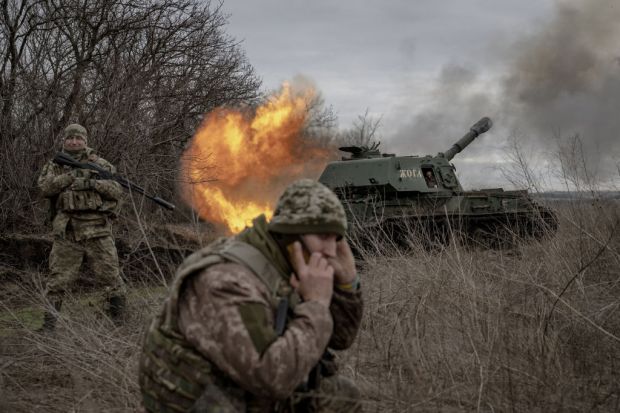
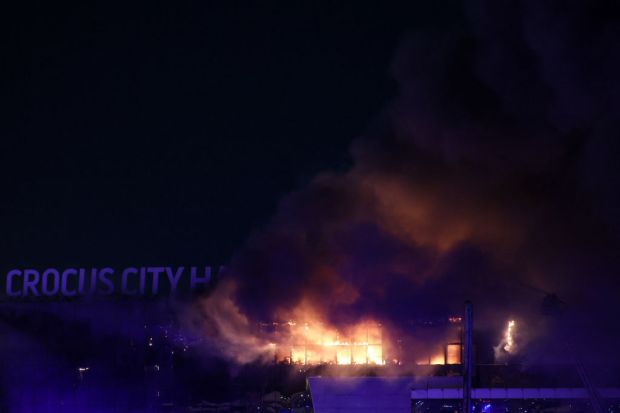
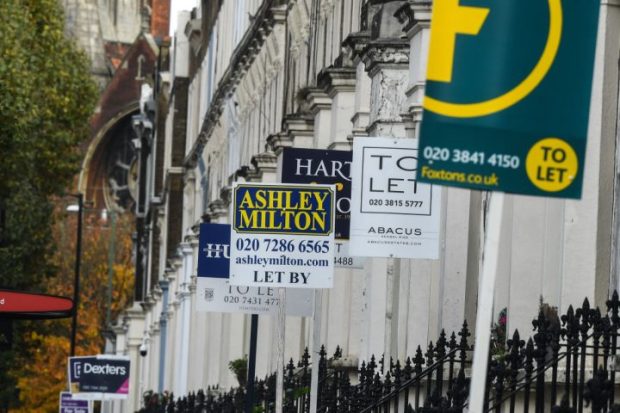












Comments
Don't miss out
Join the conversation with other Spectator Australia readers. Subscribe to leave a comment.
SUBSCRIBEAlready a subscriber? Log in